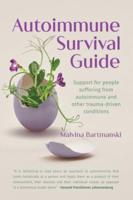Publisher's Synopsis
Sleep is one of life's fundamental requirements, and like oxygen, water, and food, we simply cannot live without it. Sleep is essential for tissue repair, metabolism, growth, infection control, and for learning, memory, and emotional regulation. Moreover, these critical functions of sleep remain true across the lifespan. In many ways sleep is nature's medicine; it is what nature has provided to deliver daytime functioning and to maintain health and wellbeing. The Oxford Handbook of Sleep and Sleep Disorders has been carefully collated by its internationally renowned editors to provide a comprehensive and up-to-date guide to our understanding of sleep and circadian processes, and of the clinical disorders of sleep and sleep-wake regulation. The handbook therefore covers what sleep is and why it matters, but also explains the disorders of sleep, and how they can be assessed, differentiated, and treated. Comprising 46 chapters, each written by leading experts in their field, the handbook is organized around four sections: 1. the fundamentals of sleep and circadian processes; 2. the roles and functions of sleep; 3. societal factors influencing sleep; and 4. disorders of sleep and circadian function. This final section is further subdivided into several components including epidemiology, classification, and assessment; management and treatment; and lifespan issues and special populations. Taken together the handbook offers clinicians and scientists the most contemporary and authoritative single resource for clinical practice and for research in the developing fields of sleep science and sleep medicine.









